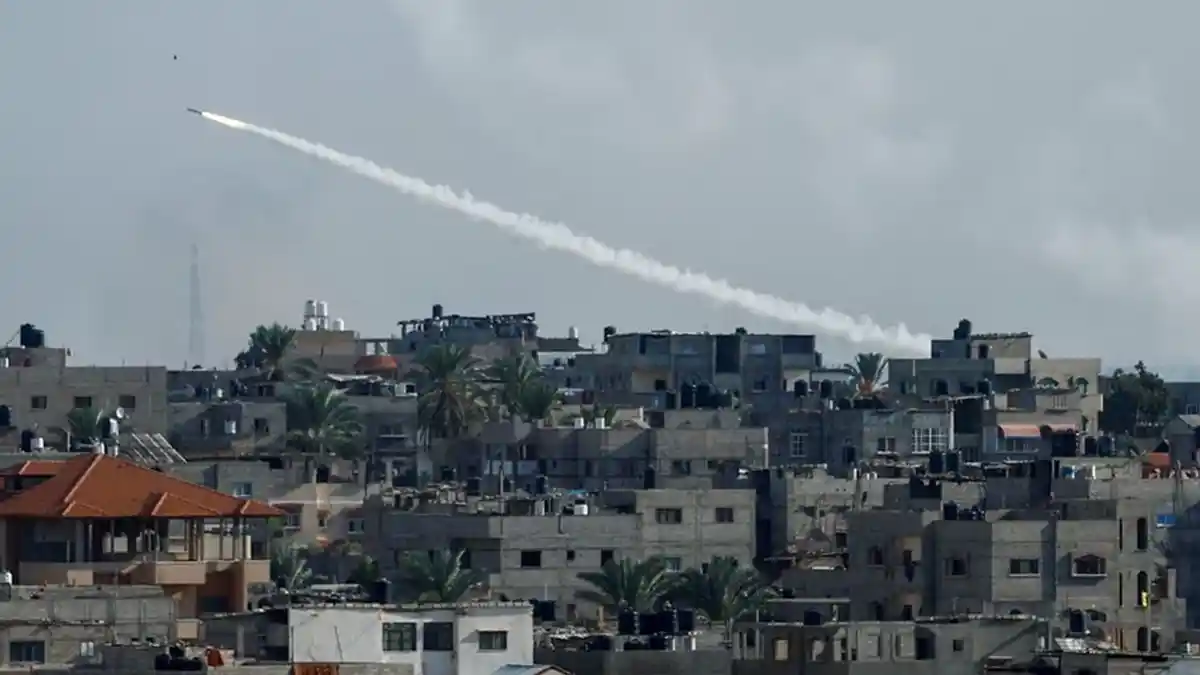A careful campaign of deception ensured Israel was caught off guard when the Palestinian Islamist group Hamas launched its devastating attack, enabling a force using bulldozers, hang gliders, and motorbikes to take on the Middle East's most powerful army.
Saturday's assault, the worst breach in Israel's defences since Arab armies waged war in 1973, followed two years of subterfuge by Hamas that involved keeping its military plans under wraps and convincing Israel it did not want a fight.
“While Israel was led to believe it was containing a war-weary Hamas by providing economic incentives to Gazan workers, the group's fighters were being trained and drilled, often in plain sight,” said a source close to Hamas.
The restraint shown by Hamas drew public criticism from some supporters, aimed at building an impression that Hamas had economic concerns not a new war on its mind, the source said.
In one of the most striking elements of their preparations, Hamas constructed a mock Israeli settlement in Gaza where they practised a military landing and trained to storm it, the source close to Hamas said, adding they even made videos of the manoeuvres.
“Israel surely saw them but they were convinced that Hamas wasn't keen on getting into a confrontation,” the source said.
Meanwhile, Hamas sought to convince Israel it cared more about ensuring that workers in Gaza, a narrow strip of land with more than two million residents, had access to jobs across the border and had no interest in starting a new war.
“Hamas was able to build a whole image that it was not ready for a military adventure against Israel,” the source said.
As part of its subterfuge in the past two years, Hamas refrained from military operations against Israel, even as another Gaza-based Islamist armed group known as Islamic Jihad launched a series of its own assaults or rocket attacks.
The final part involved moving hostages to Gaza, mostly achieved early in the attack, a source close to Hamas said.
In one well-publicized hostage taking, fighters abducted party-goers fleeing a rave near the kibbutz of Re'im near Gaza. Social media footage showed dozens of people running through fields and on a road, as gunshots were heard.
The Israeli security source said Israeli troops were below full strength in the south near Gaza because some had been redeployed to the West Bank to protect Israeli settlers following a surge of violence between them and Palestinian militants.
Israel has long prided itself on its ability to infiltrate and monitor Islamist groups. As a consequence, the source close to Hamas said, a crucial part of the plan was to avoid leaks.
Many Hamas leaders were unaware of the plans and, while training, the 1,000 fighters deployed in the assault had no inkling of the exact purpose of the exercises, the source added.
When the day came, the operation was divided into four parts, the Hamas source said, describing the various elements.
The first move was a barrage of 3,000 rockets fired from Gaza that coincided with incursions by fighters who flew hang gliders, or motorized paragliders, over the border, the source said. Israel has previously said 2,500 rockets were fired at first.
Once the fighters on hang-gliders were on the ground, they secured the terrain so an elite commando unit could storm the fortified electronic and cement wall built by Israel to prevent infiltration.
A commando unit attacked the Israeli army's southern Gaza headquarters and jammed its communications, preventing personnel from calling commanders or each other, the source said.
The Israeli security source said Israeli troops were below full strength in the south near Gaza because some had been redeployed to the West Bank to protect Israeli settlers following a surge of violence between them and Palestinian militants.
Dennis Ross, a former Middle East negotiator who is now at the Washington Institute for Near East Policy, said Israel had been distracted by violence in the West Bank, leading to a “thin, under-prepared presence in the south.”
“Hamas probably succeeded beyond their expectation. Now they will have to deal with an Israel determined to decimate them,” he said.
Retired General Yaakov Amidror, a former national security adviser to Prime Minister Benjamin Netanyahu, told reporters on Sunday the assault represented “a huge failure of the intelligence system and the military apparatus in the south.”
Amidror, chairman of the National Security Council from April 2011-November 2013 and now senior fellow with the Jerusalem Institute for Strategy and Security, said some of Israel's allies had been saying that Hamas had acquired “more responsibility”.
“We stupidly began to believe that it was true,” he said. “So, we made a mistake. We are not going to make this mistake again and we will destroy Hamas, slowly but surely.”
- By Samia Nakhoul and Jonathan Saul; Editing Dennis Gyamfi









